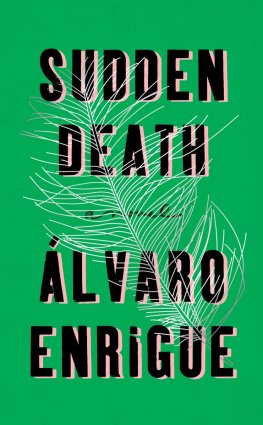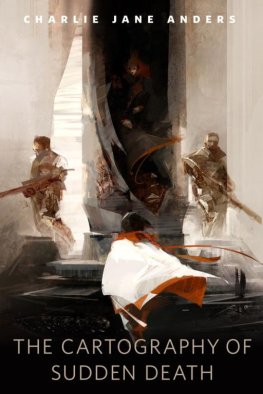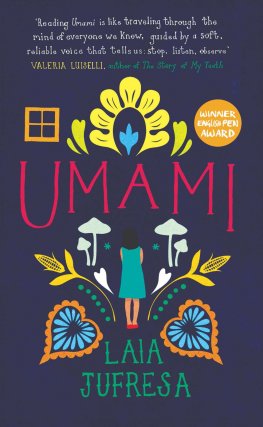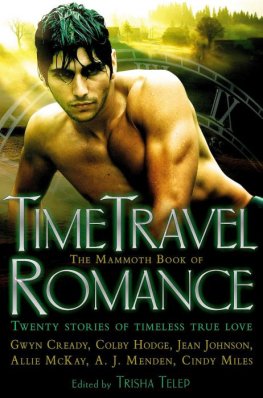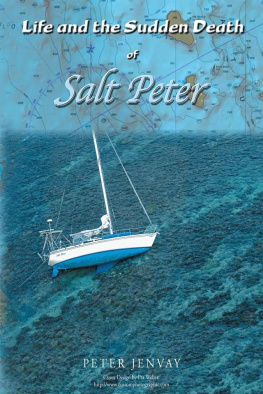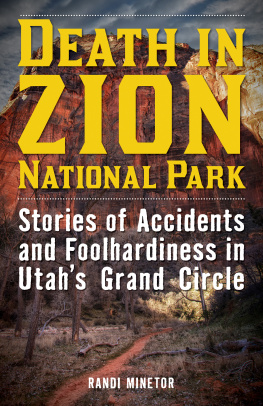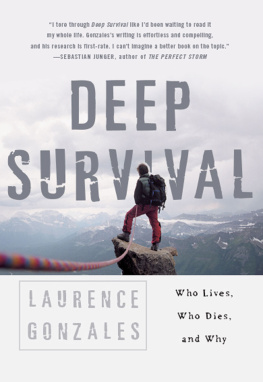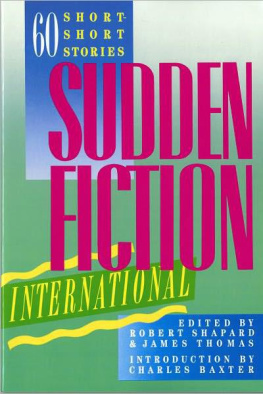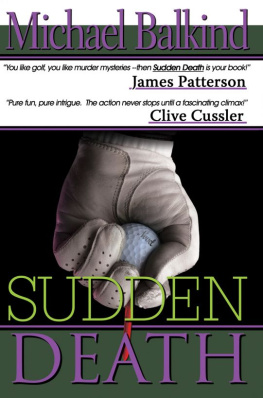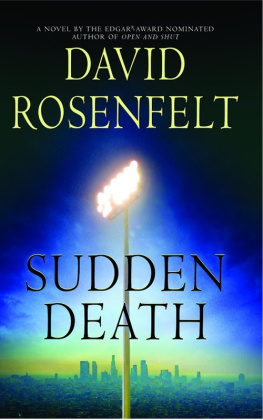lvaro Enrigue
Sudden Death
For La Flaca Luiselli
For the three Garcas: Maia, Miqui, Dy
For Hernn Snchez de Pinillos

The oldest written record of the word tennis makes no mention of athletic shoes; rather, it refers solely to the sport from which they take their name, a sport that along with fencing, its near kin was one of the first to require a special kind of footwear.
In 1451, Edmund Lacey, Bishop of Exeter, defined the game with the same suppressed rage with which my mother referred to the falling-apart Converse I wore as a kid: ad ludum pile vulgariter nuncupatum Tenys. In Laceys edict, the word tenysin the vernacular is linked to phrases with the acid whiff of court cases: prophanis colloquiis et iuramentis, vanis et sepissime periuriis illicitis, sepius rixas.
At the collegiate church of Ottery St. Mary, under Laceys rule, a group of novices had been using the roofed gallery of the cloister to play matches against townies. In those days, tennis was much rougher and noisier than it is today: some were attackers, others defenders; there were no nets or lines; and points were won tooth and nail, by slamming the ball into an opening called a dedans. Since it was a sport invented by Mediterranean monks, it had redemptive overtones: angels on one side, demons on the other. It was a matter of death and the afterlife, the ball as allegory of the soul flitting between good and evil, scheming to get into heaven, Lucifers messengers waylaying it. The soul rent asunder, just like my tennis shoes.
The prickly Baroque painter Michelangelo Merisi da Caravaggio, a great lover of the game, spent his last years in exile for having run an opponent through with his sword on a tennis court. Today, the Roman street where the crime was committed is called Via di Pallacordastreet of the ball and netin memory of the incident. Caravaggio was sentenced to death by beheading in Rome and spent years living as a fugitive, from Naples to Sicily to the island of Malta. Between commissions, he painted terrifying scenes of beheadings in which he served as his own model for the severed heads. He sent the paintings to the pope or his agents as symbolic tribute, in the hope of being pardoned. At the age of thirty-eight, Caravaggio was at last granted a reprieve, and he was on his way back to Rome when he was stabbed on the Tuscan beach of Porto Ercole, by an assassin sent by the Knights of Malta. Though he was a master of the sword and dagger, just as he was of the brush and racket, syphilitic delirium and lead poisoning left him unable to defend himself. Sepius rixas.
A few years ago I attended one of the three hundred thousand book fairs held every week across the Spanish-speaking world. A local literary critic found me so intolerable that he decided to launch a jeremiad against me. Since he didnt have the time or energy to read a whole book and take it apart, he wrote on his blog: How dare he appear in public wearing tennis shoes like that? Vanis et sepissime periuriis illicitis!
Its no surprise that anyone possessing a modicum of authority should agitate against tennis, or tennis shoes. I myself often issue complaints, like bad checks, about my teenage sons Adidas. We cling to our tennis shoes until wearing them on a rainy day is agony. Anyone in a position of power hates them, impervious as they are to their agendas.
When this book first appeared, in Spanish, a Canadian writer and very dear friend of mine told his father, who was wildly excited because he felt that fiction writing had yet to pay real tennis its due in the form of a novel. He doesnt speak Spanish, but he is perfectly fluent in French and Italian, which makes him capable enough of reading a book written in my mother tongue, so he had a copy sent to him from Spain and read it with the help of a dictionary. I cant imagine a greater honor for a writer, though Im not sure my friends father liked the book. In an attempt to save me from my own imagination, he wrote me a six-page letter pointing out all the physical impossibilities and imaginary rules I had come up with to be able to say whatever this book says. The letter proves that the true art is reading, not writing, and it is a beautiful testament of loyalty: a friend of his son is a friend of his. Commenting on some sexual incidents described in the novel, he noted: Now I know why you and my son are friends. This is a statement of complicity. It tells me that if we knew each other, he would forgive my defects just as he does his sons. And his letter is full of authority. Not the kind that comes with age or rank, since Im well past forty and a father myself, but the kind that comes with firsthand knowledge. My characters are playing pallacorda, a game whose rules are unknown, but physical memory, a sense of how the real tennis racket feels in the hand and how a real tennis ball bounces, made my friends father file a claim in the name of all realism. But the only real things in a novel are the sequences of letters, words, and sentences that make it up, and the paper on which theyre printed. What they produce in a readers head are private and unique landscapes of objects in motion that have only one thing in common: they dont exist. A game that is played in a novel has everything to do with that novel and nothing to do with reality. And even so, we tend to claim as my friends father did that certain things are to be believed and others not in this or that book. As if a ball dropped by a character could roll out of a book onto the floor, run up against our tennis shoes, and stop.
In the opening scene of the British Renaissance comedy Eastward Ho, an apprentice called Quicksilver makes his appearance wrapped in a cloak and wearing pumps slippers with thick woolen soles that are the earliest forerunners of our tennis shoes. His master, troubled by what he sees as a sign that the young man is about to fall into the company of ruffians, gamblers, and assassins, lifts the apprentices cloak. From his belt hang a sword and a tennis racket. Another in a line of authority figures mothers, fathers, critics, bishops, bosses alerted to someones essential flaws by his athletic shoes.
When leather footwear begins to look shabby, we take it to the cobbler to give it the sad newness of faces worked over by a plastic surgeon. Tennis shoes are one of a kind: there is no fixing them. What value they have derives from the scars left by our missteps. My first pair of Converse met a sudden death. One day I came home from school and my mother had thrown them away.
Its no coincidence that when speaking of someones death in Mexico we say he hung up his tennis shoes, that he went out tennis shoes first. We are who we are, unfixable, fucked. We wear tennis shoes. We fly from good to evil, from happiness to responsibility, from jealousy to sex. Souls batted back and forth across the court. This is the serve.

He felt the leather of the ball between the thumb, index, and middle fingers of his left hand. Once, twice, three times he bounced the ball on the pavement, spinning the racket handle in the grip of his right hand. For a moment he gauged the space of the court; his hangover made the midday sun seem unbearably bright. He took a deep breath: the tennis match that was about to begin was a contest of life and death.
Wiping the beads of sweat from his forehead, he rolled the ball again in the fingers of his left hand. It was a strange ball: very worn and much handled, a little smaller than usual, solid in a way that was recognizably French; it had a more hectic bounce than the balls filled with air that he was used to playing with in Spain. He glanced down and with his toe scraped the stripe of lime that marked the end of his side of the court. He would come down on his short leg just behind the line: this was the surprise factor that made him invincible with a sword, and perhaps why not? with a racket too.

